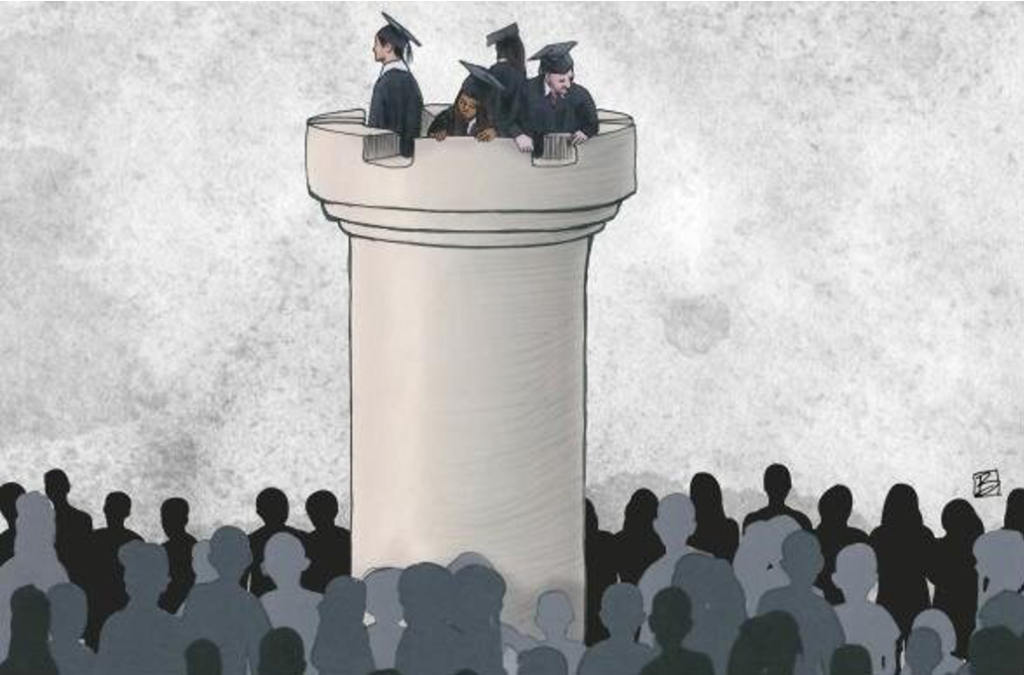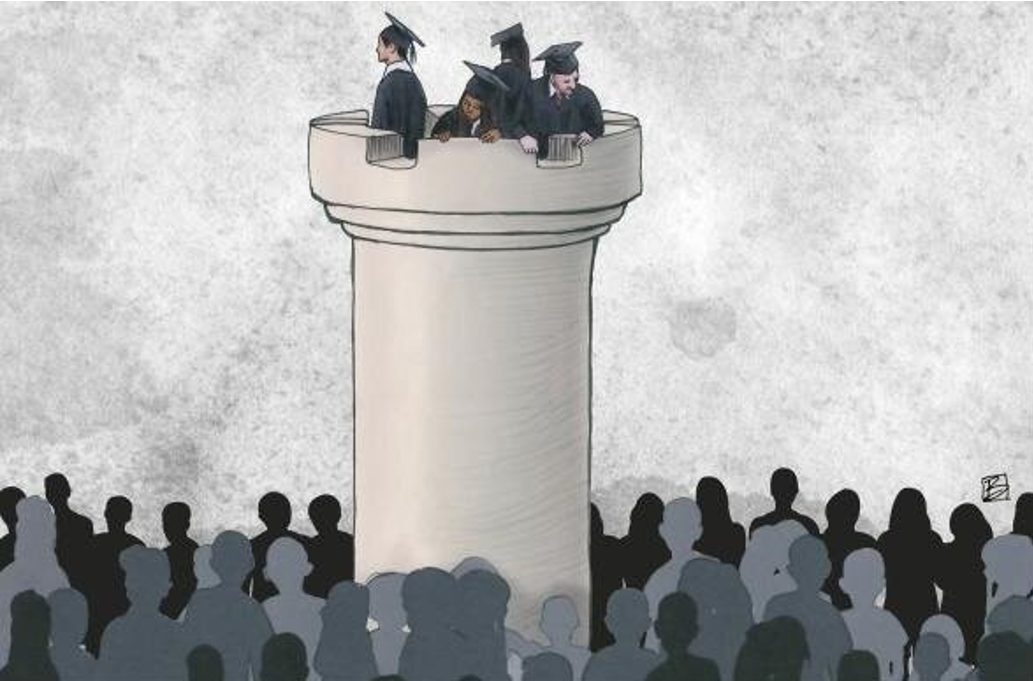By Kallen Mohr
So, you have found your calling in the social sciences. You find your classes interesting and the work important. You decide to continue in your academic studies to grad school and beyond, where you plan on enacting real change that will make a difference in the lives of real people. You share a passion for social justice along with fellow students. You become part of an institution that prides itself on diversity and service. You believe you have all the ingredients to curate your career in academia, a career that will be based on your deep, intrinsic values of community service, social justice, and advocacy. You believe in the potential of academia to serve more than its own interests. You believe in the promise of research to bridge the gap between action and inaction and bring society one step closer to fixing its oppressive systems. You believe, after all, in the promise of academia.
According to Emily Kane, a sociologist who conducts feminist and community-based research, the promise is soon to be broken.
Emily Kane’s story of attending graduate school for sociology, which she details in her publication “Getting to Know People with Experiences and Knowledge Far beyond My Own: Feminism, Public Sociology, and Community-Based Research,” is hardly a new one. Nor is the outcome of her story. She never left academia and she never stopped her research, as others have inevitably done, but after twenty-five years she says she “[has] a deeper understanding of obstacles.” This seems to be a recurring theme with those who enter academia with aspirations of change. The academy has long been a kind of “bubble,” distinctly apart and separate from anything outside of itself. And the bubble is not an easy one to pop. As Kane cites in her work, academia has become more and more “professionalized” in recent years with institutions pressuring academics to become as credentialed as they can, no matter how many hoops come their way. Add to this the pressure of churning out publications with regular frequency, and academic research becomes not a calling but a box that threatens back at you when it remains unchecked.

Now, more than ever, academia is all about the numbers game. How many donors? How much funding? How many PhD candidates? How many publications? How many students enrolled in your course? In such a culture that thinks solely in terms of “input” and “output,” burnout and disillusionment are free to run rampant. Any and all work quickly loses motive as well as meaning, and social justice work is no different. If working within the system of academia is a slog, it is no wonder that the academy continues to operate as a closed ecosystem. It is difficult enough to change what is already known, much less bring in people and ideas from outside the “ivory tower.” But perhaps there is still hope.
Obviously, there are many things that much change in academia, too many to list in such a short write-up. But one way to ensure that at least some of the promise given to young academics hoping to enact social change is kept is to conduct and publish research that is based outside of academia’s “bubble.” Engaging with public sociology, which emphasizes communication and collaboration with non-academics, and utilizing community-based research (CBR), which aims to produce research for the public, are just two steps on the way to promise-keeping.
Especially in the social sciences, like sociology and WGS, where people are our subject and our motive, our goal must always be to achieve justice and social change. In order to reach this goal and ensure that the promise of academia is upheld, we must climb down from our ivory tower and work with the people who are and will be affected by us the researchers. Maybe, one day if we’re lucky, the tower will become nothing more than a pile of old rubble.


